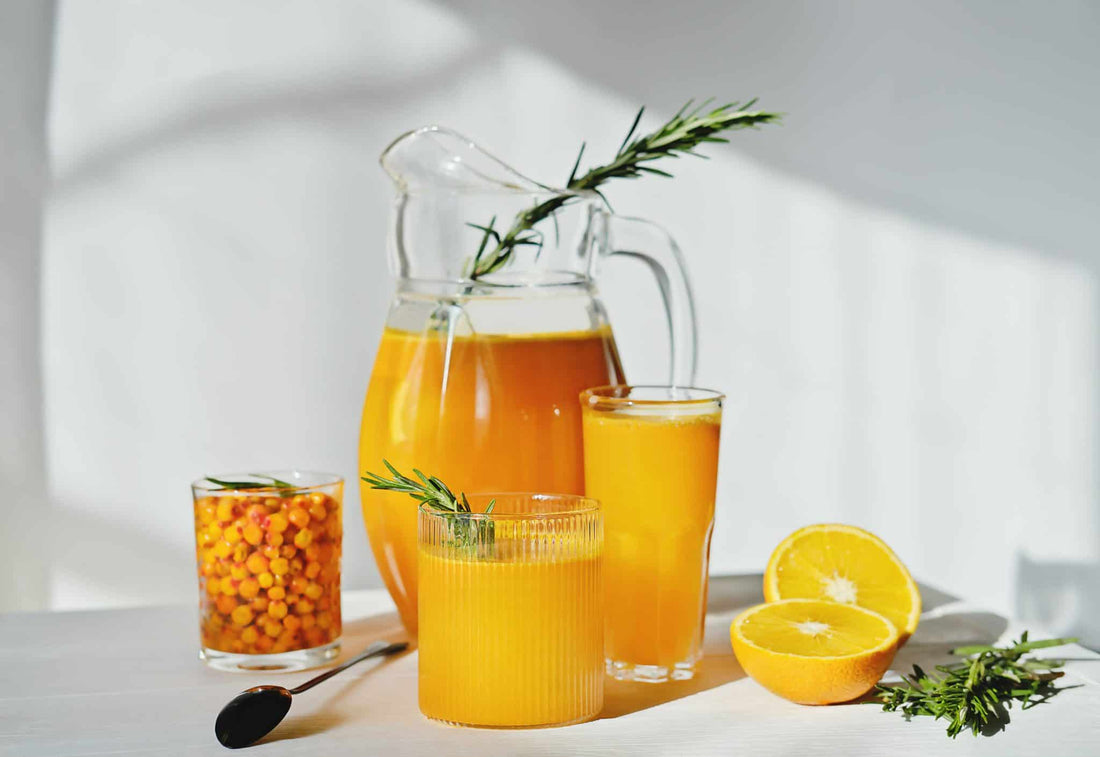Juice cures are a health and wellness trend that has become increasingly popular in recent years. Fans of juice cures, or juice fasts, especially emphasize the benefits that come with drinking juice, such as weight loss or improved nutrient absorption.
While juices are a concentrated source of beneficial nutrients, they are also a concentrated source of carbohydrates in the form of sugar. Let's take a closer look at that.
How does a glass of fruit juice affect blood sugar?
Juices contain many carbohydrates in the form of sugar, which can contribute to a rapid increase in blood sugar levels. For example, one glass (200ml) of orange juice contains 20 grams of sugar. Processing the fruit removes much of the fiber from fruits and vegetables. If this fiber is missing, the sugar from these foods is absorbed into the blood more quickly. The result is a faster rise in your blood sugar level. The subsequent rapid drop in blood sugar levels can then cause headaches, hunger or, in the case of a juice later in the evening, sleep problems, for example.
Think about how long it takes you to eat 2-3 oranges or drink one glass (200ml) of orange juice. 2-3 oranges is somewhat the amount contained in a glass of orange juice. Most people would agree that it is much easier and faster to drink this amount of orange juice than to peel, slice, chew and swallow 2-3 whole oranges.
If you keep this example in mind, it's easier to understand that eating the whole fruit - and not just the juice - leads to a slow and controlled increase in blood sugar levels. This is also because the process of consumption takes longer.


So, are smoothies better?
If you are now considering drinking a smoothie instead of pure fruit juice, we recommend adding protein and fat to your smoothie. This combination results in a slower blood sugar rise compared to pure fruit juice.
Green smoothies usually have a high vegetable content and thus are less likely to spike blood sugar, provided apple or other
fruit juice is not added.
Are juice diets unhealthy?
So can we say that juice fasts or juice cures are recommended, even if blood sugar rises and falls sharply?
We, at Hello Inside, believe that there is nothing wrong with having a juice day every now and then, as long as you feel good about it. However, it is important to remember that this is not a long-term form of nutrition, and can also bring unpleasant side effects, such as headaches, hunger or fatigue.
In general, we do not recommend to do without fruits and vegetables. To help you balance your blood sugar, we have collected the following 5 tips.
Our tips
- Eat your fruit as unprocessed as possible and fruit whole
- If possible, leave the shell on
- Combine your fruit juices or smoothies with protein and fat
- Choose vegetable juices (green smoothies) when possible
- Pay attention to the portion size
Are you ready to go on your own journey of discovery?





